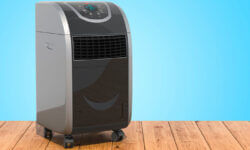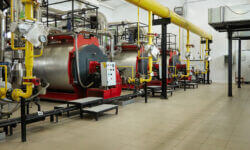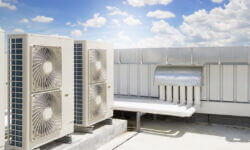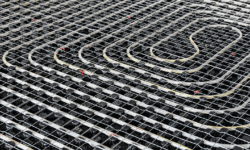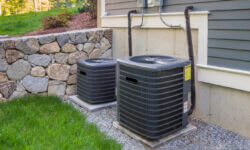Businesses have different needs when it comes to heating, ventilating, and air conditioning buildings and facilities. What every business has in common, though, is the desire to save money. Commercial enterprises analyzing their HVAC requirements can consider using portable spot air conditioners. Read on to know about these compact air conditioning units and if they’re right for your business.
Read more →The Importance of Air Quality in the Classroom As students return to school hallways and education returns to normal, new indoor air quality (IAQ) considerations will apply. In a world of heightened safety concerns, schools will need to take precautions to ensure a healthy indoor climate. IAQ
Read more →How to Prevent Commercial Boiler Issues Providing employees with a comfortable indoor climate boosts productivity and helps improve their wellbeing while at work. A commercial boiler provides everyone (regardless if they work in the executive offices or basement copy room) with comfortable temperatures, especially during colder months.
Read more →Energy remains one of the major overheads for commercial properties and buildings. According to the U.S. Energy Information Administration (EIA) in 2019, space heating accounted for about 38% of delivered energy in the building sector. Therefore, regularly reviewing your building’s HVAC efficiency can help save on costs and reduce operational overhead. Not to mention, investing in energy-efficient HVAC will also help fight climate change, create a sustainable future, and improve the building’s IAQ.
Read more →According to the Centers for Disease Control and Prevention (CDC), HVAC systems present a significant risk of COVID-19 exposure to workers in office buildings. Therefore, in order to protect staff, reduce costs, and improve the indoor climate, it’s time to start planning how to improve your system over the coming year. Here are the top five New Year’s resolutions you should set for your commercial building’s HVAC system.
Read more →Maintaining a comfortable indoor climate in commercial buildings is an overhead most operators and owners need to revisit often. According to the U.S. Department of Energy (DoE), radiant heating is a good option compared to other heating systems like forced-air and baseboard heating. If you’re considering the benefits of radiant heating for your commercial property, take a moment to review some important facts.
Read more →Heating, Ventilating, and Air-Conditioning (HVAC) systems are what we know. HVAC systems control the temperature, air quality, and humidity in buildings large and small. Yet, not all HVAC systems are the same, especially when it comes to commercial buildings. That is why we want to talk about the basics. Things you need to know to help you understand the complexity behind commercial HVAC systems. While it might seem as simple as keeping the indoors cool in the summer and warm in the winter, there is so much more to it. So, let’s talk about understanding commercial buildings’ HVAC systems.
Read more →Many large commercial buildings use rooftop systems, also called packaged HVAC systems. While common, not all smaller commercial buildings use them. Some still use split systems, which tend to be more common with residential buildings. Essentially the difference between split systems and a rooftop system is in the name. Half the unit is inside, half of it is outside. Packaged systems are all in one unit. In commercial buildings, they are referred to as rooftop systems because that is typically where you find them.
Read more →In a crucial time of medical uncertainty, HVAC systems have a big job to do. They help to maintain the health and safety of patients and employees in health care facilities. Ventilation systems help to reduce the spread of airborne contaminants and keep the indoor air quality (IAQ) safe. All in all, this helps to protect the health of more vulnerable populations, such as immunocompromised and elderly people. Continue on to learn more about the essential components of ventilation in health care facilities.
Read more →While commercial and residential HVAC systems primarily serve the same purpose of heating, cooling, and ventilation there are some major differences too. Here at The Severn Group, we specialize in commercial HVAC. So, we know first hand just how unique these two systems can be in terms of size, location, and manufacturing.
Read more →